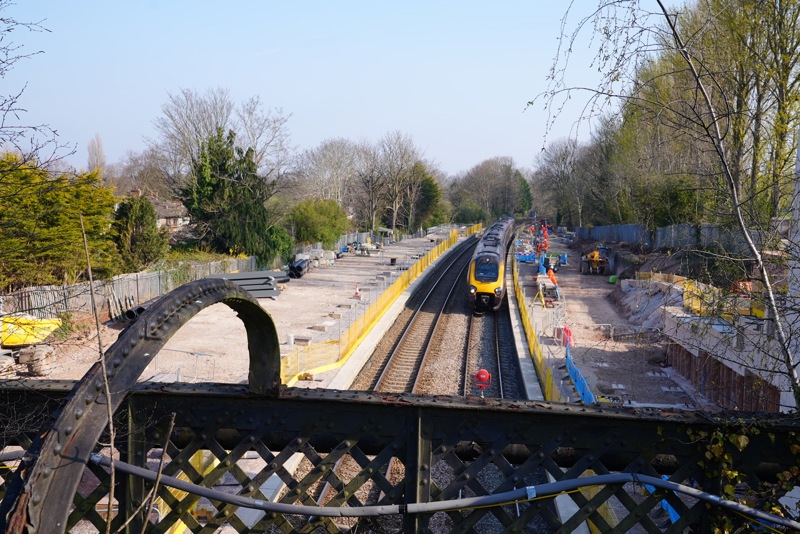
The opening of three new stations being built on Birmingham’s Camp Hill line could be delayed until early 2026.

The opening of three new stations being built on Birmingham’s Camp Hill line could be delayed until early 2026.
When asked by RAIL, those behind the scheme were unable to confirm exactly when the stations will open to passengers.
On a recent site visit to the new Kings Heath station, West Midlands Mayor Richard Parker indicated that progress is being monitored regularly, but he was unable to confirm whether passengers would be using the stations this year, as promised.
Parker told RAIL: “I’ve met with everyone involved and I’m really pleased with the progress we’re making with monitoring the scheme on a weekly basis. We’re currently on plan to deliver the stations by the end of the year.”
When pushed on whether that meant that the stations would be open to passengers, Parker added: “We’re currently working with all the parties to ensure we then have trains running through them as early as possible.”
RAIL understands the Mayor has now received assurances from all those involved in the stations’ construction that the target for completion at the end of the year will be met. However, approvals for the stations’ ‘entry into service’ and for the provision of train services relies on other parties.
A track access application by West Midlands Trains to the Office of Rail and Road for a twice-hourly service along the Camp Hill line, using Class 196 diesel multiple units, has yet to be approved. The application suggests that trains will shuttle between Birmingham New Street and Kings Norton stations on the Cross-City Line.
Possible further delays follow two previous announcements putting back the opening date ofthe three stations at Moseley Village, Pineapple Road and Kings Heath. They are now around two years behind schedule.
Costs on the project have risen as a result of COVID and construction inflation. It’s expected that the final price tag for the scheme could be well in excess of the £60 million thought to have been budgeted for the three stations originally.
Jo Shore, Head of Delivery at Transport for the West Midlands, said: “Costs have risen, but we are in a situation where we have secured additional funding, and we are moving forward and we are confident that we have the money we need to deliver these stations.”
Construction comes more than 80 years after services were withdrawn at the original stations on the route. The Camp Hill line is still used for freight and CrossCountry services.
When the new stations finally open, they are expected to make a big difference to those living in the areas they serve. Streets close to the stations often suffer congestion, making journey times unreliable.
Parker said: “These three new stations will be transformational. Congestion on the roads inhibits people getting into the city centre, and it actually makes getting around this part of the city a challenge for too many people.
“It takes too long, and these stations will open up these routes and networks and encourage more people to use public transport.”
Login to continue reading
Or register with RAIL to keep up-to-date with the latest news, insight and opinion.


















Login to comment
Comments
No comments have been made yet.